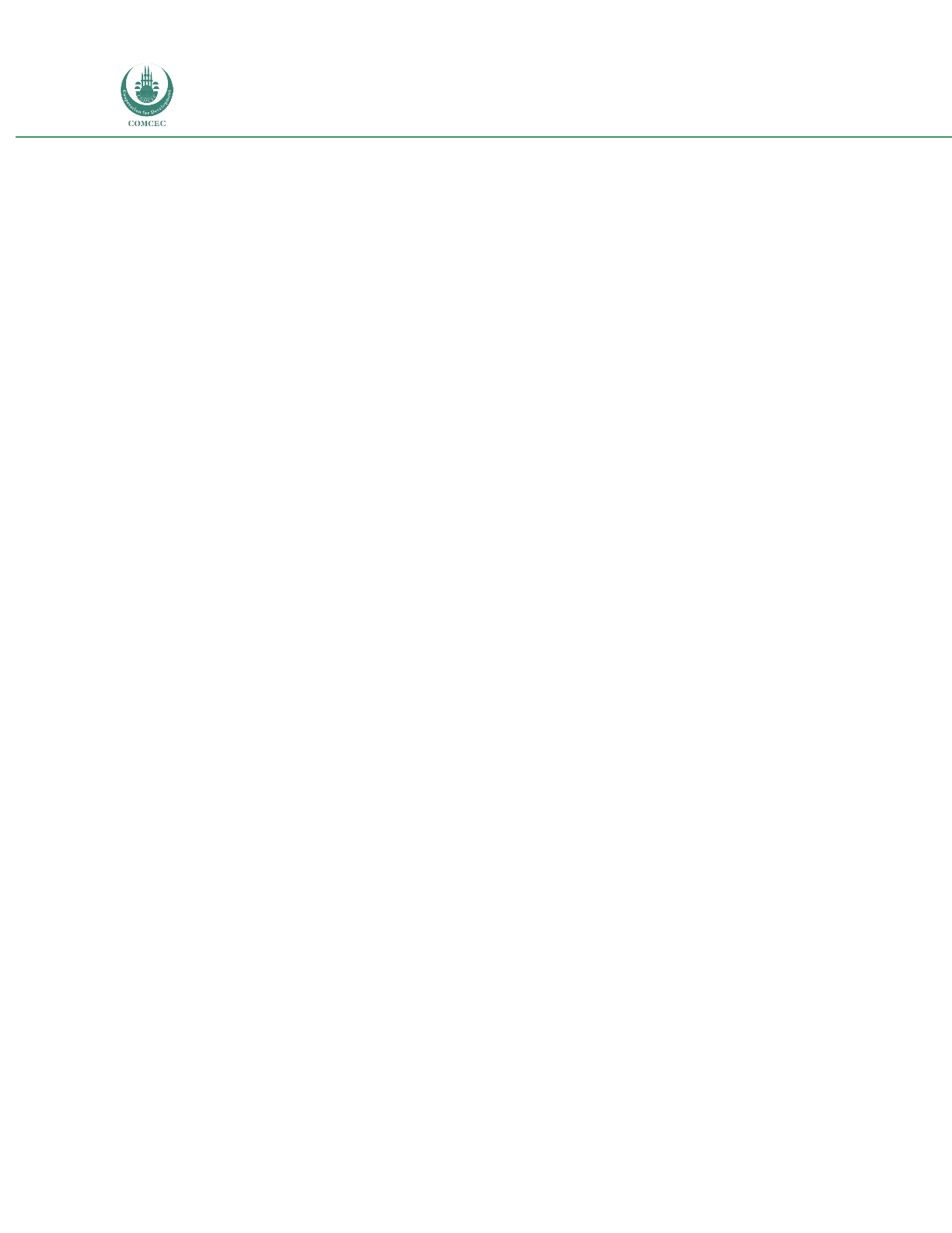

Strengthening the Compliance of the OIC Member States
to International Standards
104
because of their compulsory nature, voluntary standards are perhaps used less than 50% of the time—a
serious issue for the competitiveness of Senegalese firms looking to enter international markets.
In addition to issuing standards, the ASN also takes part in certification activities. However, the
inspection and certification landscape is somewhat fragmented, with the Ministry of Agriculture and the
Fisheries Directorate exercising jurisdiction over products within their respective purviews. Inspection
sites are established at land border crossings and at Dakar airport. Certification can be in terms of
Senegal’s own standards or foreign standards. There is no organization in Senegal responsible for
systems certification, so the gap is filled by overseas organizations including the French standards
agency (AFNOR) and SGS. Although it is important to ensure that certification bodies have sectoral
expertise, Senegal’s approach—given its relatively low level of standardization—may be unduly
fragmented, which creates confusion and cost for businesses. As a short term measure, the government
could consider whether or not it is appropriate to favor some small degree of consolidation, until quality
infrastructure is more developed.
Senegal does not have a national metrology institute, but a governmental reflection is currently
underway looking at the possible establishment of such a structure in the future. Although there are
some laws on the books—one dating from the colonial era—dealing with weights and measures, there is
no dedicated framework for metrology in the country. The existing legal framework is no longer adapted
to the needs of a modern quality infrastructure.
Laboratory structures are also lacking in Senegal. There is no official testing laboratory, although there
is one private laboratory that performs testing functions. This capacity will need to be developed in the
future, as a key part of quality infrastructure. It is foreseen that testing infrastructure will be developed
in tandem with metrology infrastructure. The National Testing Laboratory (LEN) is not yet operational
due to the lack of an appropriate statute. Nonetheless, there is a variety of private laboratories that test
particular products, in the absence of an overarching official structure.
Similarly, Senegal does not have accreditation facilities. At this stage, when organizations need
accreditation, they use foreign organizations, most commonly the French COFRAC. Although this is a
sensible approach given the lack of domestic facilities, it results in high costs. An important step forward
for the region would be the operationalization of a regional structure for accreditation (SOAC, under the
ECOWAS umbrella), but this is still an issue for the future at the present time.
Among the challenges faced by the ASN, two loom large: insufficient financial resources, and a relative
lack of involvement of the private sector. The first is common in the developing country context, and is
an area where technical assistance and capacity building can help. The second is a more serious
















